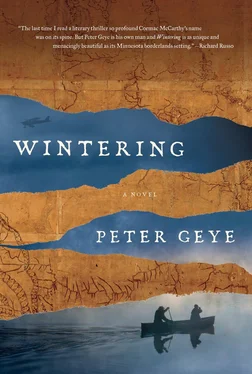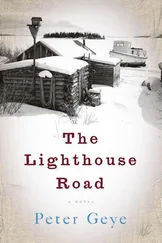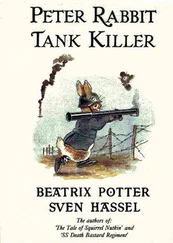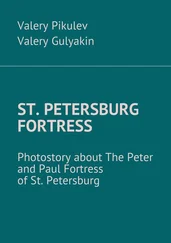For six months, every young man from Duluth to the Canadian border had been ready to fight. Harry had been at basic training in Fort Dix for three weeks. Charlie’s brother, George, was anxious to enlist himself. But Charlie? He came home from the University of Minnesota with his diploma and a medical exemption his father had paid for, already grooming Charlie to run the family’s business.
Not that they had a legitimate enterprise. The Aas clan — even back then — was focused on back-door deals. I already mentioned that Charlie’s grandfather had his hand in whiskey smuggling during Prohibition. Marcus was a rival to Odd Eide, who was Hosea Grimm’s right hand. But as Hosea’s empire went the way of his sanity, fueled by Odd’s striking out on his own, and as Charlie’s father, Marcus, Jr., came of age, the Aas family became the kingpins of Arrowhead County. By the time Hosea passed away, they controlled the real-estate market and ran a couple saloons and, for a few years, even a family restaurant and the confectionery on the Lighthouse Road. What these businesses had in common was that they were all duplicitous, each fronting some other endeavor or working in concert with something crooked. Politics. Tourism. The church. They had a hand in it all, like minor and pathetic gangsters. And Charlie was the natural heir to every bit of it. Home from college, he was anxious to prove his grit, and any target would do.
During those years I was running the post office myself, Rebekah having gone properly and finally as mad as a March hare. Though, in fairness, there was no shortage of craziness back then, what with all the mothers and wives stopping by daily in hopes of letters from their sons and husbands. Failing that, they’d settle for news of any sort. So it was a busy time to be sorting mail. And to be offering kind and hopeful words.
I was sorting a bag of those letters when Charlie came in. I was alone in the apothecary except for Rebekah’s dog, a yappy little schnauzer that patrolled the sales floor like a sentinel. She growled as Charlie leaned against the counter smoking a cigarette, her black lips quivering. I could smell the whiskey on Charlie’s breath even from behind the counter. He was paunchy and red-faced but it wasn’t hard to see the handsome in him. I’ll admit that, much as it pains me to say it. Everyone thought so.
“Now, Miss Lovig, I know you’ve been patient. Biding your time. And I appreciate it,” Charlie said. “But your lucky day is upon us.” He made a show of crushing out his cigarette, then set his hat on the counter. “What say you and I take a stroll up the Lighthouse Road? We’ll wait for the moon to rise and then, well, I’ll give you a chance to see what all the fuss is about.”
“I beg your pardon, Mr. Aas?”
That leer, it was as ugly a thing as I’ve ever seen. “Come on, now, Berit. This is your chance. Get out from under this roof and that hobgoblin upstairs. I’ll show you a time!”
“Please leave,” I said. It took some courage to say it, and I could feel the weight of his black eyes on me. It wouldn’t have been unheard of for him to smack me right across the counter. Or worse. When he said nothing, I turned away from his stare and whispered, “There’s no mail for you today.”
“You goddamn cooze.” He stepped back slowly and spread his arms wide, stabbing at me with his hateful eyes. “You ain’t seen the last of Charlie Aas. I’ll be back for you.”
The next day he was there before lunch. This time he walked in the front door with a gargantuan dog he kept on a shot-peened length of chain. This beast was rumored to have descended from the legendary Ovcharkas that had guarded the logging camp up on the Burnt Wood River, back in the days of Gus’s great-grandmother.
Of course, excepting Rebekah’s little yapper, dogs weren’t allowed in the apothecary, and straightaway I told Charlie to take his mongrel outside. In answer, he jerked the chain sharply. The dog looked up at him, then sat back on its haunches. Charlie squatted and rubbed its belly for a long minute. The schnauzer was growling all the while, quickstepping in circles, its little ears pinned back, its teeth clenched and bared.
“You’d better rein that little bitch in,” Charlie said as he stood up. “Czar here’s got a pecker like a stick of dynamite and he ain’t afraid to use it.” He kicked his brute’s hind leg out to show what he said was true. “You see what I’m saying, Berit Lovig?” He nodded down at the dog’s genitals. “All I have to do is cluck my tongue and Czar here will rip that little shit in half. I couldn’t stop him if I wanted to. That’s just how it is.”
“Take that hellhound out of here, Mr. Aas. Right this minute.”
“You call old Czar here a hellhound?” Charlie said, feigning indignation. “You might stop to consider what that makes me.” He made another great show of taking a cigarette from his shirt pocket. He struck a wooden match and lit the tip of the cigarette. Rather than blowing out the match, he let it burn down to his fingers and didn’t flinch when the flame touched his skin. Nor did he drop the match. He merely smiled and exhaled smoke from his cigarette. “You’ve been warned. Consider that little rat warned, too.” He stomped his foot at the schnauzer and howled like a dog himself.
—
His message was sent. Of course it was. And I was properly terrified. It’s easy to look a fiend in the eye and know that much. But it wasn’t enough for him to leave me scared. For that man, nothing was ever enough.
Two days later I went onto the porch to shake out the rugs. It was early morning and no one was about. I opened the door, hung the rugs over the railing, and then noticed the schnauzer in the empty flower box. Or, rather, I noticed half of her, the hind legs and tail and rump all torn or eaten away. I screamed. I screamed and ran inside, wanting to tell Rebekah. It was her dog, after all. I thought, too, of calling the sheriff. But, like everyone else in town, the sheriff was just another lackey on the Aas payroll. So I fetched a paper sack and my gardening gloves and carried the remains to the rubbish bin out back, dumped them in, and spent the rest of that week and most of the next frightened of what he might do.
It was six weeks later when his final revenge came. In any case, that’s what I always considered it. I read that warm morning that a new post office would be built, near the library on the highway running through town, the apothecary, according to the Ax & Beacon, having become unsuitable as a federal building. The article cited fire hazards and vermin infestation, neither of which was factual. There had never been an inspection. Never a letter. Never a word of any sort that might have questioned the building’s integrity. Charlie was finally learning how to wield his influence.
NOWADAYS the book of maps sits on the mantel, between deer-antler bookends, in Gus’s great room. Above the mantel, a scaled-down replica of David Thompson’s epic map of the Northwest Territory hangs where the painting of Harry in his fishing boat once did. It is, Gus admits, a peculiar choice. It could even be mistaken as an affront to his father and his own maps, given their history, to say nothing of their proximity to Thompson’s replica. But he likes to think it’s to the contrary, that the juxtaposition is in fact a fitting homage.
The only sound beyond the chafing fire was the ticking of the grandfather clock in the corner. It was the first morning he’d invited me in, and I cannot say how strange it felt to be there without Harry down the hall. Even the coffee steaming from mugs on the table sent me back to those nights I spent watching Harry’s mind begin fading away. And Gus sitting at the head of the table in much the same posture that Harry always assumed — chin both jutting and hanging, eyes watery, hands folded before him. All of it so eerie and wonderful that it would have been easy to get swamped by sad memories.
Читать дальше












